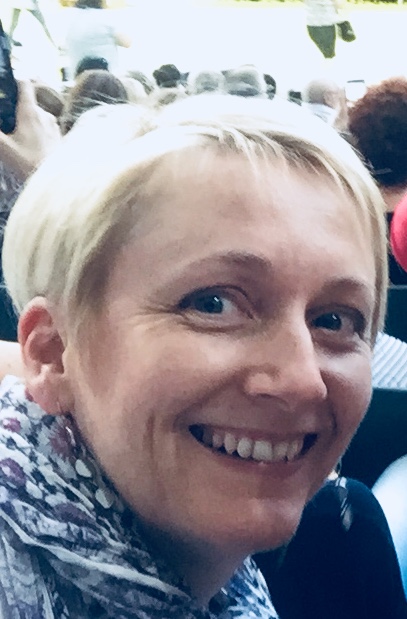As innovation only happens through people, learning from others is something we swear by here at Ecos. For this issue, I had a chat with Julia Anderson, who is the Manager of Customer Experience and Improvement at Bendigo and Adelaide Bank, based in Adelaide, SA. We first met Julia during an in-house Design Thinking Experience training that we conducted at Bendigo and Adelaide Bank’s head office, in Bendigo.
RG – Tell us a little about yourself.
JA – Originally from the UK, I moved to Adelaide, South Australia, in 2007 with my husband. Since then, I’ve worked in the university sector as well as State Government before joining Bendigo and Adelaide Bank back in 2014. I’ve worked in several roles throughout my career, including Project Management, Business Analysis, Business Improvement and most recently Change Management. It’s not all work and no play – I also enjoy cycling, both on-road and mountain biking. I also love animals (having once been a veterinary nurse) and currently have two rescue cats, one rescue whippet and a rescue greyhound. I also run a small physical therapy business for dogs in my spare time!
RG – When was the first time you heard about Design Thinking?
JA – I first came across some of the concepts of Design Thinking when I was in a Business Improvement role and undertook some training in Lean, Six Sigma and general continuous improvement practices. Since then, I’ve applied some of these concepts to each role I have had, but I was not really across “DT” as a specific discipline until the last couple of years. I started to apply it more purely when transitioning to Agile in my current Change Management role.
RG – How do you think DT can positively impact your industry?
JA – DT plays a huge part in our line of work – being in the financial industry; we are all about service. Bendigo & Adelaide Bank prides itself in our community and service focus. We currently employ DT in several areas of the bank, but I can see it proving invaluable when designing banking for the future. The customer is always as the centre of everything we do, so it makes sense to employ DT when designing products and services so that we continue to provide great customer experience as well as being able to move and change quickly to keep pace with the changing market and environment.
RG – What was your most significant learning during Echos’ Design Thinking Experience course?
JA – The biggest learning for me was in the physical prototyping and ‘building to think’ concept. During the course, our team had to reframe the problem several times, and we really learned about making sure we were focused. This will help us to ensure we work on the right things first back in the ‘real world’.
RG – Do you think this experience helped you become a better professional? If yes, how?
JA – As I said before, DT plays a huge role in my line of work. I will ensure that I, and any new starters in my team, apply the three elements of empathetic research to fully understand the problem, challenge, issue, opportunity, etc.
RG – Could you share a project in which you applied Design Thinking?
JA – Recently, we have been applying DT to help improve a new system that was implemented around 12 months ago. Through the workshops we conducted, we were able to pinpoint several key areas for improvement, based on the user and customer experience information. That way, we could feed into the Agile delivery teams to ensure the right issues were being prioritised. This proved really valuable, and we will be expanding our DT work as a result.
RG – What pearls of wisdom would you share with someone who is starting to learn Design Thinking?
JA – Make sure you fully understand the problem or opportunity you are focused on BEFORE you start to design or implement! Test your thoughts and hypotheses as much as time & budget allow. Build to think! And also not to be afraid of prototyping, it may seem like playing like kids sometimes, but it really does help the creative process.
RG – To finalise, could you share with our readers a quote that inspires you?
JA – “Change will not come if we wait for some other person, or if we wait for some other time. We are the ones we’ve been waiting for. We are the change that we seek.” ― Barack Obama
RG – Thank you, Julia!
—
If you would like to share with us your own experience with Echos, send us an email expressing your interest. If you would like to be a contributor to the Echos’ Blog, submit here your 500-700 words article on Design Thinking, Innovation, etc., and we’ll be in touch.



